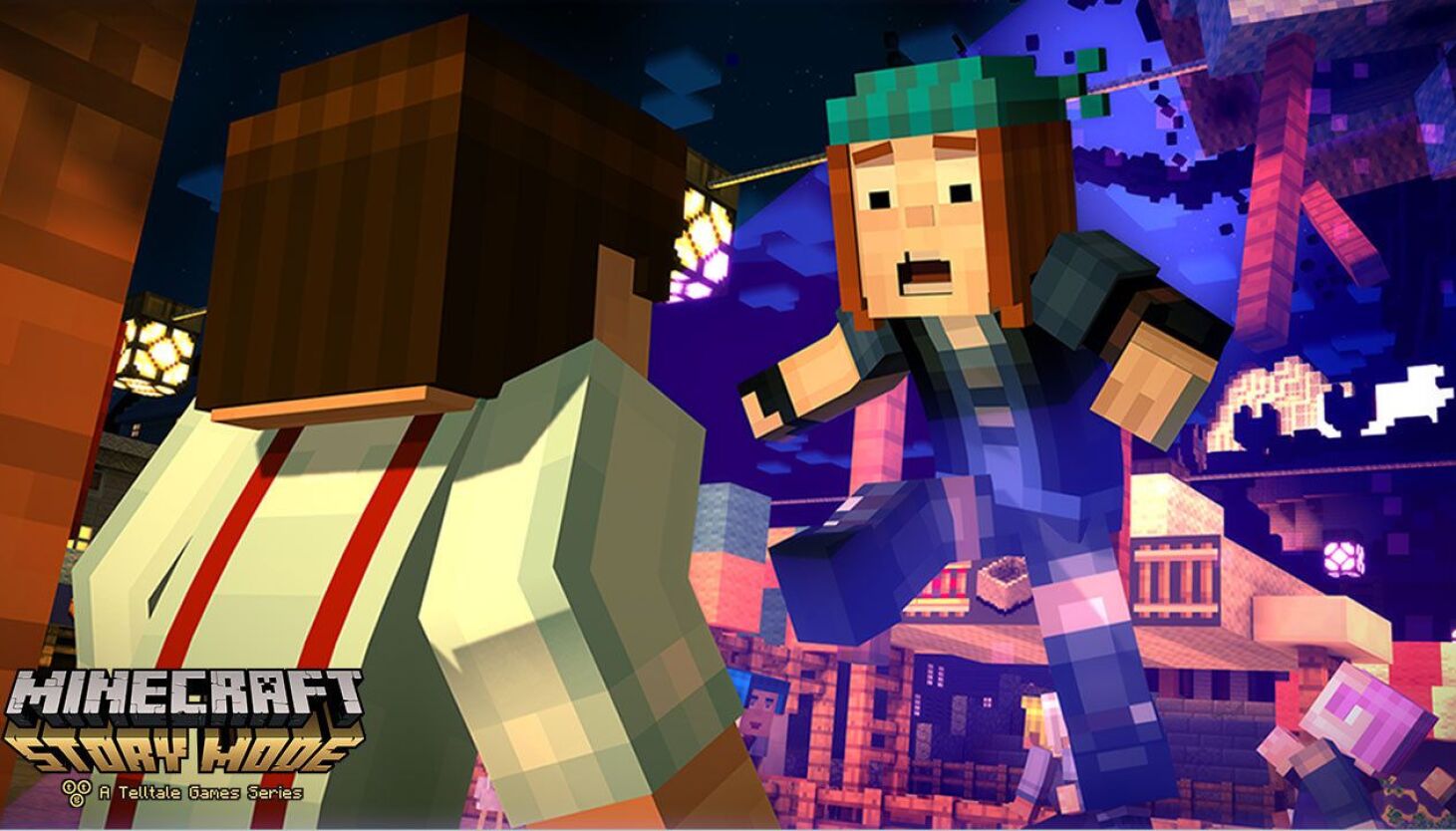The Minecraft: Story Mode — The Complete Adventure game includes all five episodes of Season 1 and all three episodes of the Adventure Pass.
Business Wire via Associated Press
Minecraft has built its status as the most popular video game ever, having sold almost 240 million copies worldwide since its public release in 2011, in large part thanks to its free-roaming and creative game play and a populist approach to managing the online platform where its players gather to explore, build, tussle with zombies and, yes, even mine essential materials.
On Wednesday, a blog post on the Minecraft website declared that, in order to maintain its egalitarian goals for the game, it was banning the sale of non-fungible tokens, or NFTs, from the servers it owns or controls.
(In case you’re behind on NFTs: They can be just about any digital asset like a music clip, video, digital photo, digital art or, in the case of video games, a character’s outfit or weapon, a building or some other modification, that is identified with a unique sequence of digital code. That code lives on a digital shared-ledger, or blockchain, platforms that embrace a transparent, crowd-verified system for record keeping and work to make tracking, validating and transferring certain kinds of assets fast, seamless and outside the control of any single entity. You can purchase an NFT, which grants ownership of that line of code, but it doesn’t necessarily convey any other rights, such as copyright protection or the power to license use of the image, clip, etc.)
Minecraft’s early success drew a ton of acquisition interest from established game development companies and Silicon Valley venture capital firms just a few years after its debut. Microsoft, which was keen on bringing the game to its XBox console, was ultimately the winning suitor, buying rights to the game and its developer, Mojang Studios, for a cool $2.5 billion back in 2014.
So, what’s the deal on the NFT ban? In its blog posting, Mojang Studios said it felt compelled to protect the users of its game platform from the impacts of Minecraft-related NFT sales, saying their sale was in contravention of rules established to ensure that Minecraft “remains a community where everyone has access to the same content.”
“NFTs … can create models of scarcity and exclusion that conflict with our Guidelines and the spirit of Minecraft,” the blog post reads. “To ensure that Minecraft players have a safe and inclusive experience, blockchain technologies are not permitted to be integrated inside our client and server applications, nor may Minecraft in-game content such as worlds, skins, persona items, or other mods, be utilized by blockchain technology to create a scarce digital asset.”
Minecraft noted some of the ways NFTs were finding markets within the world of game play included modifications to world files and “skin packs,” the collections of outfits and accessories that allow players to customize digital characters created in Minecraft. Minecraft also cited concerns over other pivot points for NFT sales, such as creating Minecraft collectible NFTs, allowing players to earn NFTs through activities performed on a server or earning Minecraft NFT rewards for activities outside the game.
“NFTs are not inclusive of all our community and create a scenario of the haves and the have-nots,” the blog post reads. “The speculative pricing and investment mentality around NFTs takes the focus away from playing the game and encourages profiteering, which we think is inconsistent with the long-term joy and success of our players.”
Minecraft also highlighted its worries over the volatility of NFT investment markets and incidents of outright fraud.
“We are also concerned that some third-party NFTs may not be reliable and may end up costing players who buy them,” the blog reads. “Some third-party NFT implementations are also entirely dependent on blockchain technology and may require an asset manager who might disappear without notice.
“There have also been instances where NFTs were sold at artificially or fraudulently inflated prices.”
What NFT developers have to say about it: NFT Worlds is one of the developers of NFT modifications specifically built for Minecraft and has also created play-to-earn games, which pay out their own cryptocurrency $WRLD for every 30 minutes you play, per TechCrunch.
Following news of Minecraft’s NFT ban, the company tweeted that it was caught off guard by the announcement of the new policy and suggested the ban could lead to negative consequences for Minecraft.
“First and foremost, this out of nowhere announcement by Microsoft/Minecraft to outright ban all possible uses of NFTs & blockchain tech within Minecraft feels like a step backwards in innovation and may even have painful downstream effects for them in the long run,” the tweet reads. “We’ll see how that plays out.”
We've just shared the following announcement on our Discord regarding the current @Minecraft & @nftworldsNFT situation. pic.twitter.com/ARbKABRK4A
NFT Worlds said they were attempting to connect with Minecraft developers to further discuss the ban and, hopefully, work toward an “alternative outcome that’s beneficial to the Minecraft player base as well as Microsoft’s vested interest in blockchain/NFT technology.”
But, should the company fail at finding a compromise solution, NFT Worlds intimated it could simply pivot to building its own Minecraft-esque game platform and leave “Minecraft & Microsoft completely out of the picture with no ability to stop us.”
Copyright © 2022 Deseret News Publishing Company. All Rights Reserved

